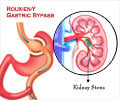Bariatric surgery stabilizes cognition in obesity, challenging expectations.
- Bariatric surgery shows potential in mitigating cognitive decline linked to obesity
- Study challenges prior findings, emphasizing surgery type's role in cognitive outcomes
- Improved executive functions noted, but divergent memory impacts highlight complexity
The Effect of Surgical Weight Loss on Diabetes Complications in Individuals with Class II/III Obesity
Go to source).
Bariatric Surgery Could Counteract Cognitive Decline in Obese Patients
According to researchers, this suggests that bariatric surgery could potentially counteract the anticipated cognitive decline associated with obesity. The findings have been published in the Journal of Nutrition, Health & Aging. Evan Reynolds, Ph.D., the lead statistician for the NeuroNetwork for Emerging Therapies at Michigan Medicine, and the first author of the study, highlighted the need for future controlled trials to further examine these outcomes. He noted that individuals with obesity typically undergo more rapid cognitive decline than those without, and the stability in cognition observed two years post-bariatric surgery may be considered a positive outcome against historical trends.Addressing the Discrepancy
While this study is the largest to investigate changes two years after bariatric surgery, the results contradicted previous studies that reported improved memory and executive functioning among similar patients. Reynolds explained that the discrepancy may be attributed to the composition of the study groups, with the previous study primarily including patients who underwent gastric bypass, while their study focused mainly on individuals who underwent a sleeve gastrectomy.The researchers emphasized the necessity of conducting larger observational studies or randomized controlled trials to provide comprehensive evidence on the effectiveness of bariatric surgery on cognition and to explore potential differences between surgery types.
Furthermore, the study found that improvements in diabetes complications, such as peripheral neuropathy, chronic kidney disease, and retinopathy, after bariatric surgery were not linked to enhanced cognition.
Senior author Brian Callaghan, M.D., a neurologist at the University of Michigan Health and the Eva L. Feldman, M.D., Ph.D., professor of neurology at U-M Medical School, highlighted the need for a better understanding of how metabolic factors, including diabetes and obesity , can be effectively treated to improve cognitive outcomes in patients.
"In the pursuit of cognitive well-being, bariatric surgery emerges as a potential game-changer. The journey to understand and enhance cognitive outcomes continues."
- The Effect of Surgical Weight Loss on Diabetes Complications in Individuals with Class II/III Obesity - (https://www.ncbi.nlm.nih.gov/pmc/articles/PMC10011764/)
Source-Medindia














